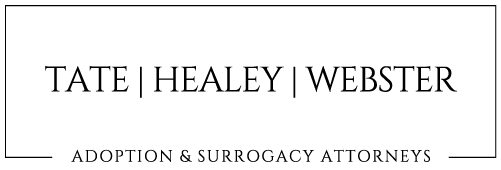Conservatives Push to Revive Obamacare Adoption Tax Break
By Alan K. Ota, CQ Roll Call
Rep. Diane Black has taken the lead strengthening GOP support for a bipartisan plan to revive refundable tax credits for adoption-related expenses that were part of the 2010 health care law but expired.
While the GOP looks to uproot pillars of the health care law (PL 111-148, PL 111-152), conservatives such as Black, R-Tenn., and Trent Franks, R-Ariz., are joining with the likes of Danny K. Davis, D- Ill., to support a proposal (HR 2434) Black says is needed to strengthen families. Black expressed confidence Republicans would support the measure, even though it revives language that was part of President Barack Obama’s top legislative achievement.
“I don’t think most people are even going to connect it to that. But even if they did, it is such and important issue I think that is something that people will find they can support,” Black said.
Black’s proposal and companion measure (S 950) by Sen. Bob Casey, D- Pa., would restore language that made the adoption tax credit refundable for two years ending in 2011. Black said refundable incentives would support adoptions by low-income families, who do not earn enough taxable income to make use of tax credits.
“Almost half of all children adopted from foster care live in households with incomes at or below 200 percent of the poverty threshold. The tax code should work for these families that open their hearts and their homes to adoption — not against them,” Black said.
She and other supporters say the legislation would help to turn homes for more than 400,000 children In foster care into “forever homes” for adopted children. Currently, about 50,000 adoptions are arranged annually by public welfare agencies.
While emphasizing the benefits for low-income families, advocates like Sen. Thom Tillis, R-N.C., say they are trying address concerns raised by deficit hawks about the potential for fraudulent claims for refundable incentives such as the earned income tax credit and child tax credit. “There is a lot of fraud out there, and there have to be consequences. But on this one, I think the chances for that are minimal, because of the nature of the process. And it is not a recurring benefit,” Tillis said
In addition to playing down fraud concerns, Franks has made the case that the refundable adoption credit would help to curb federal spending over time. “Keeping children in families saves society money by breaking children out of a cycle we know for so many, often leads to homelessness, welfare, incarceration or other tragic outcomes,” Franks said.
Families now may claim a credit for up to $13,190 for expenses related to adoption, including travel, legal and placement fees and other costs. The benefit was first enacted in 1996 (PL 104-188), expanded in 2001 (PL 107-16) and made permanent by the 2012 fiscal cliff deal (PL 112-240).
In coming weeks, Black and Casey say they’ll work with the 130-member bicameral adoption caucus, and they say the legislation could move as an add-on to must-pass legislation at the end of the year. Casey said he doubted the measure would be part of a potential business tax overhaul, but that it could be added to a package of tax break extensions.
“I think it will be in the context of extenders, or it could be a stand-alone bill,” Casey said.
Becky Weichhand, executive director of the Congressional Adoption Coalition Institute, an education and support group, said that the fate of adoption tax credit would hinge on the ability of lawmakers to build consensus in both parties, particularly within the GOP’s right wing.
“A lot of conservative members are supporting because they have spoken out about the moral obligation to support children living in families.”
